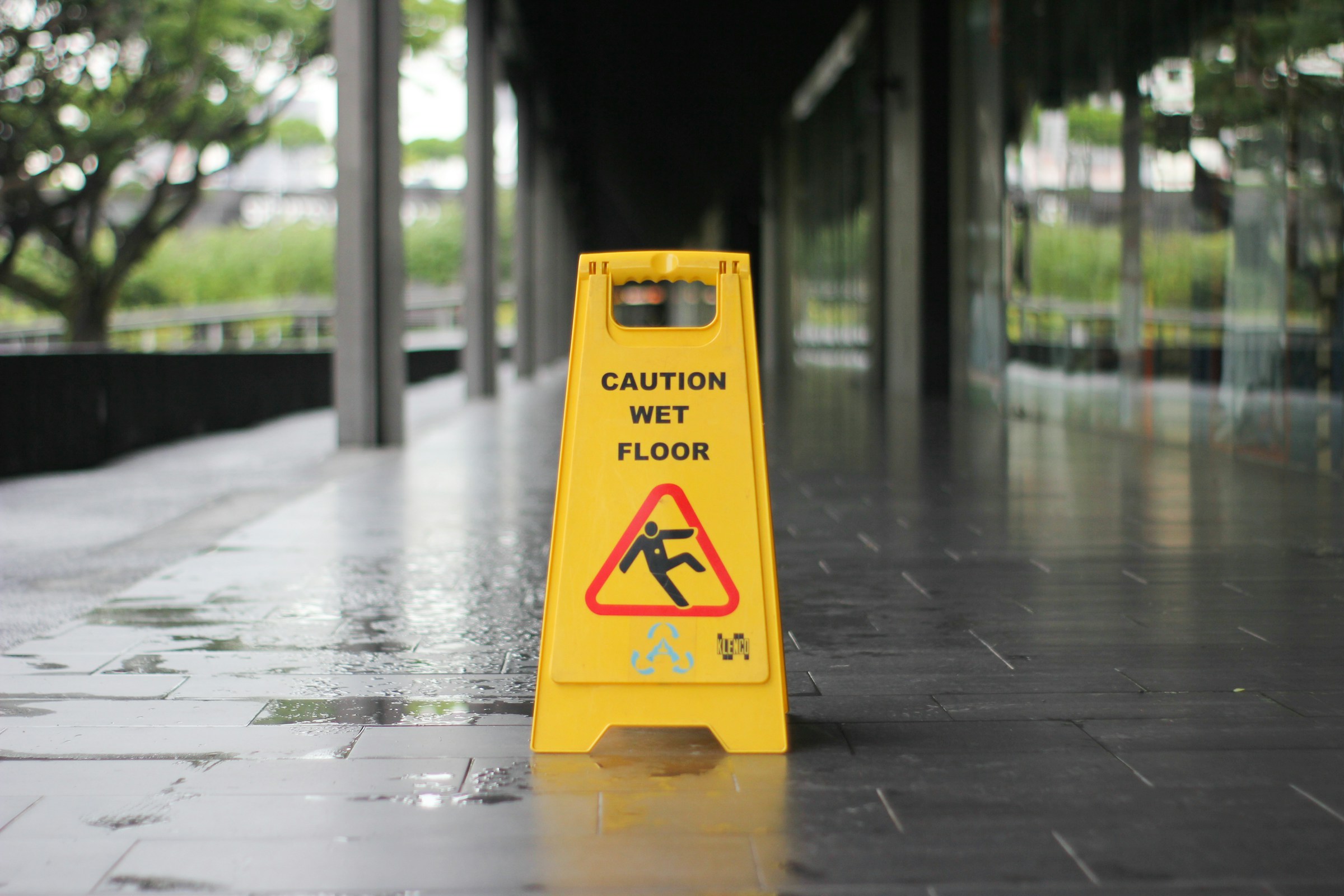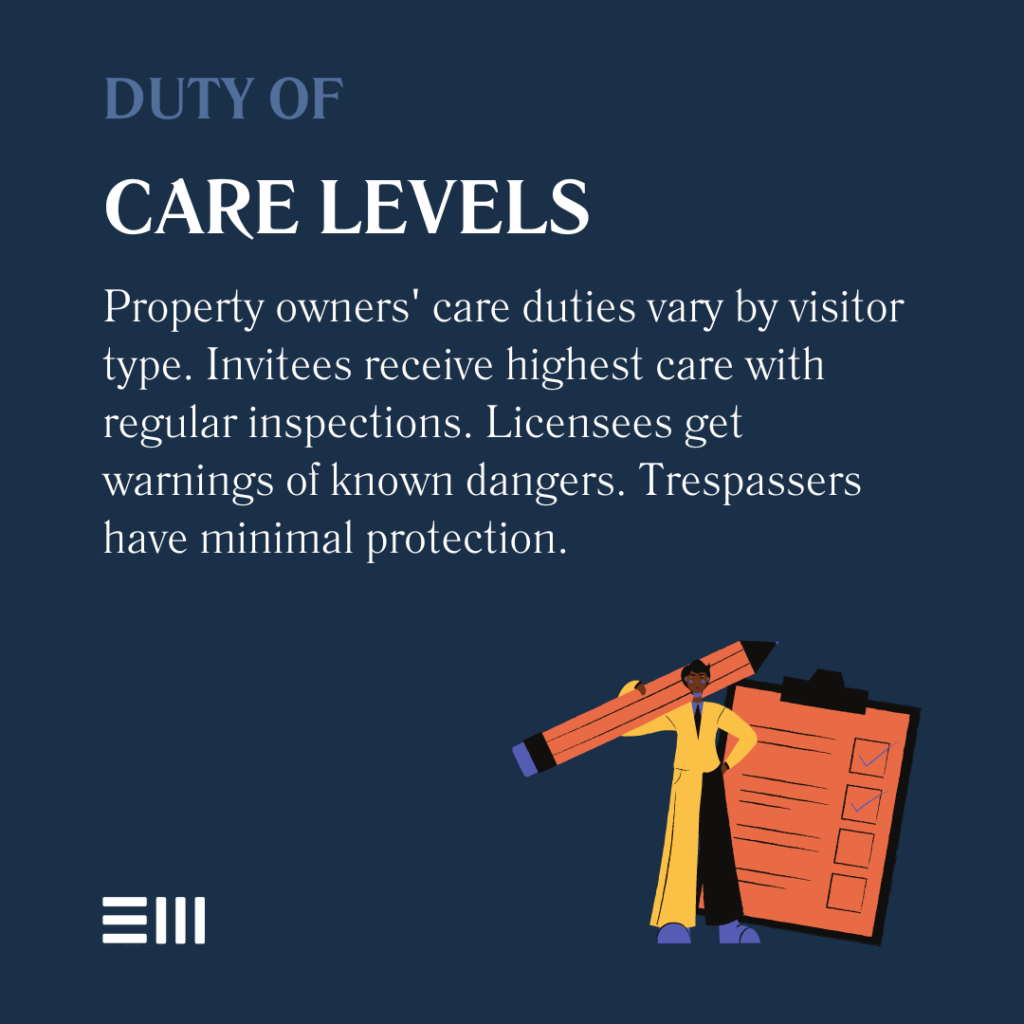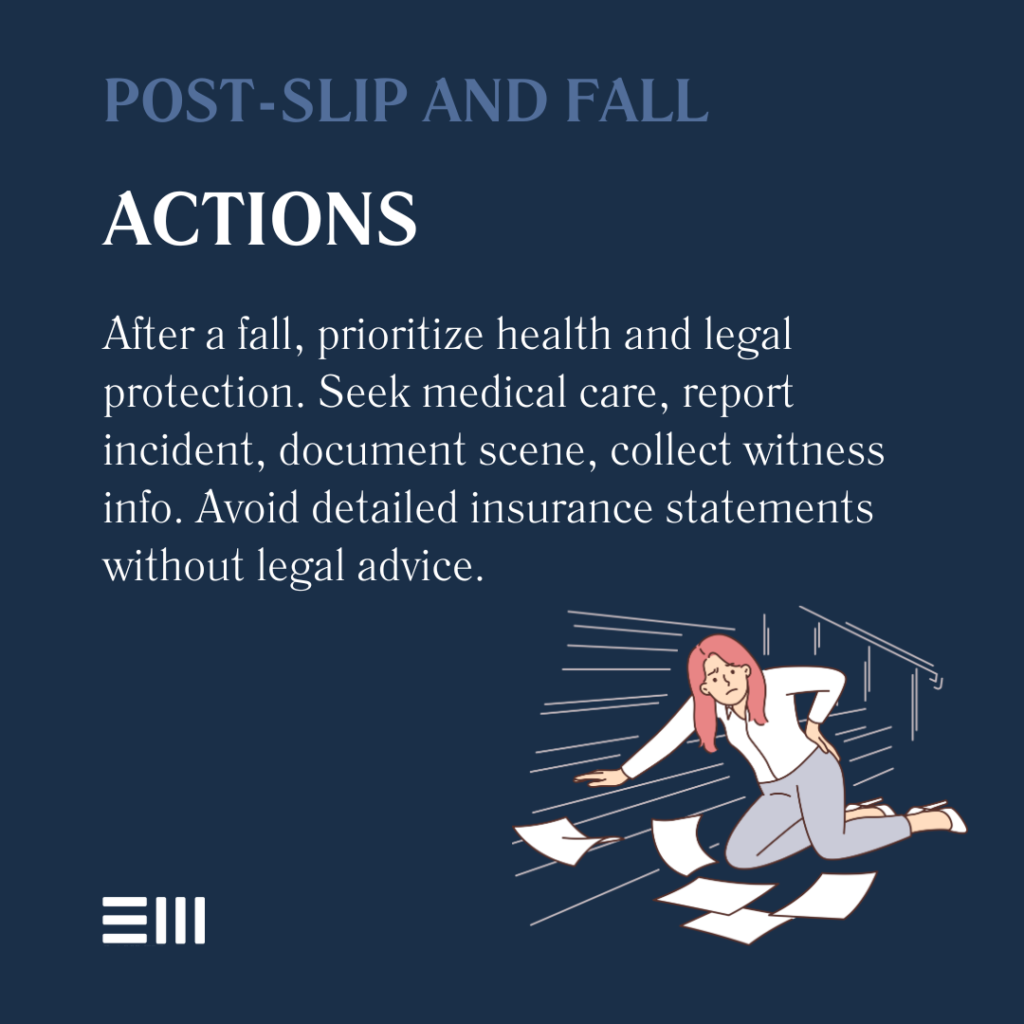
Did you know that slip-and-fall accidents account for over 1 million emergency room visits annually in the United States? These incidents, often overlooked, can lead to severe injuries and complex legal battles.
In Alabama, understanding the nuances of property owner negligence and duty of care is crucial for both property owners and potential victims.
This comprehensive guide delves into the intricacies of slip-and-fall accidents, shedding light on the legal responsibilities of property owners and the rights of those injured on their premises.
Understanding Slip and Fall Accidents
Slip and fall accidents encompass a wide range of incidents where a person loses their footing and sustains injuries due to hazardous conditions on someone else’s property.
These accidents can occur in various settings, from grocery stores and restaurants to private residences and public sidewalks.
Common causes of slip and fall accidents include:
- Wet or slippery floors;
- Uneven surfaces;
- Poor lighting;
- Loose carpeting or floorboards;
- Icy walkways; and
- Debris or obstacles in walkways.
The severity of injuries from these accidents can vary greatly, ranging from minor bruises to life-altering conditions such as traumatic brain injuries or spinal cord damage.
Property Owner Negligence: The Legal Foundation
At the heart of slip-and-fall accident claims lies the concept of negligence. In legal terms, negligence occurs when a property owner fails to exercise reasonable care in maintaining their property, resulting in harm to others.
To establish negligence in a slip-and-fall case, the following elements must typically be proven:
- The property owner owed a duty of care to the injured party;
- The property owner breached this duty;
- The breach directly caused the accident; and
- The accident resulted in actual damages or injuries.
Understanding these elements is crucial for both property owners seeking to protect themselves and for individuals who have suffered injuries in a slip and fall accident.
Duty of Care: A Property Owner’s Responsibility
The duty of care is a legal obligation that requires property owners to maintain their premises in a reasonably safe condition for visitors. This responsibility forms the foundation of premises liability law, which governs slip and fall accident cases.
In Alabama, the extent of a property owner’s duty of care depends on the status of the visitor:
- Invitees: Individuals invited onto the property for business purposes (e.g., customers in a store) are owed the highest duty of care. Property owners must regularly inspect their premises, repair known hazards, and warn of potential dangers.
- Licensees: Social guests or individuals permitted on the property for their own purposes are owed a moderate duty of care. Property owners must warn of known dangers that may not be obvious to the visitor.
- Trespassers: Individuals on the property without permission are owed the lowest duty of care. Property owners generally only have a duty not to willfully or wantonly injure trespassers.
Understanding these distinctions is crucial for both property owners and potential plaintiffs in slip-and-fall cases.

Establishing Negligence in Slip and Fall Cases
Proving negligence in a slip-and-fall case can be challenging. It requires demonstrating that the property owner knew or should have known about the hazardous condition and failed to address it adequately.
Key factors in establishing negligence include:
- The length of time the hazard was present;
- The property owner’s regular maintenance and inspection practices;
- Whether there were any warnings or barriers around the hazardous area; and
- The reasonableness of the property owner’s actions (or lack thereof) in addressing the hazard.
Gathering evidence such as incident reports, surveillance footage, witness statements, and photographs of the accident scene can be crucial in building a strong case.
Contributory Negligence in Alabama
It’s important to note that Alabama follows the doctrine of contributory negligence. This means that if the injured party is found to be even 1% at fault for the accident, they may be barred from recovering any damages.
This strict rule makes it essential for plaintiffs to present a strong case demonstrating the property owner’s negligence while refuting any claims of their own contribution to the accident.
Common Defenses in Slip and Fall Cases
Property owners and their insurance companies often employ various defenses to contest slip and fall claims. Understanding these defenses can help potential plaintiffs prepare stronger cases:
- Lack of notice: The property owner may argue they had no knowledge of the hazardous condition and no reasonable opportunity to address it.
- Open and obvious hazard: If the danger was clearly visible and avoidable, the property owner might claim the injured party should have exercised greater caution.
- Improper use of the property: The defense may argue that the plaintiff was using the property in an unintended or reckless manner.
- Assumption of risk: This defense suggests that the plaintiff knowingly and voluntarily assumed the risk associated with the hazardous condition.
- Lack of causation: The property owner may contend that their negligence did not directly cause the plaintiff’s injuries.
Being aware of these potential defenses can help injured parties and their legal representatives build more robust cases.
Steps to Take After a Slip and Fall Accident
If you’ve been involved in a slip and fall accident in Alabama, taking prompt and appropriate action can significantly impact your ability to seek compensation:
- Seek medical attention immediately, even if injuries seem minor;
- Report the incident to the property owner or manager;
- Document the scene with photographs and videos if possible;
- Collect contact information from any witnesses;
- Preserve the clothing and shoes worn during the accident;
- Avoid giving detailed statements to insurance companies without legal counsel; and
- Consult with an experienced personal injury attorney.
Taking these steps can help preserve crucial evidence and protect your legal rights in the aftermath of a slip and fall accident.

Potential Damages in Slip and Fall Cases
Victims of slip and fall accidents may be entitled to various types of compensation, depending on the circumstances of their case:
- Medical expenses (past and future);
- Lost wages and loss of earning capacity;
- Pain and suffering;
- Emotional distress;
- Loss of enjoyment of life; and
- Rehabilitation costs.
In cases of extreme negligence, punitive damages may also be awarded to punish the property owner and deter similar behavior in the future.
Statute of Limitations for Slip and Fall Claims in Alabama
It’s crucial to be aware of the time limits for filing a slip and fall lawsuit in Alabama. The statute of limitations for personal injury claims, including slip and fall accidents, is generally two years from the date of the incident.
Failing to file within this timeframe can result in the loss of your right to seek compensation.
Frequently Asked Questions About Slip-and-Fall Accidents in Alabama
Navigating the aftermath of a slip-and-fall accident can be overwhelming.
Here are answers to some of the most common questions we receive about property owner negligence and duty of care in Alabama.
What Should I Do Immediately After a Slip and Fall Accident?
After a slip and fall accident, prioritize your health and safety. Seek medical attention, even if you feel fine, as some injuries may not be immediately apparent.
Report the incident to the property owner or manager, and document the scene if possible. Collect contact information from witnesses and avoid giving detailed statements to insurance companies without legal counsel.
How Can I Prove the Property Owner Was Negligent?
Proving negligence involves demonstrating that the property owner knew or should have known about the hazardous condition and failed to address it.
Gather evidence such as incident reports, surveillance footage, witness statements, and photographs of the accident scene. An experienced attorney can help you build a strong case by collecting and presenting this evidence effectively.
What if I Was Partially at Fault for the Accident?
Alabama follows the contributory negligence rule, which means if you’re found even 1% at fault for the accident, you may be barred from recovering damages.
It’s crucial to present a strong case demonstrating the property owner’s negligence while refuting any claims of your own contribution to the accident. Consulting with a skilled attorney is essential in these situations.
Get Expert Legal Assistance for Your Slip-and-Fall Case
Have you or a loved one been injured in a slip-and-fall accident in Alabama? Don’t face the legal complexities alone.
At Baxley Maniscalco, our experienced team of personal injury attorneys is dedicated to fighting for the rights of slip and fall victims.
We understand the challenges you’re facing and are committed to helping you secure the compensation you deserve.
Take the first step towards justice and recovery. Contact Baxley Maniscalco today for a free, no-obligation consultation.
Can't find what you're looking for? Search our site below.










